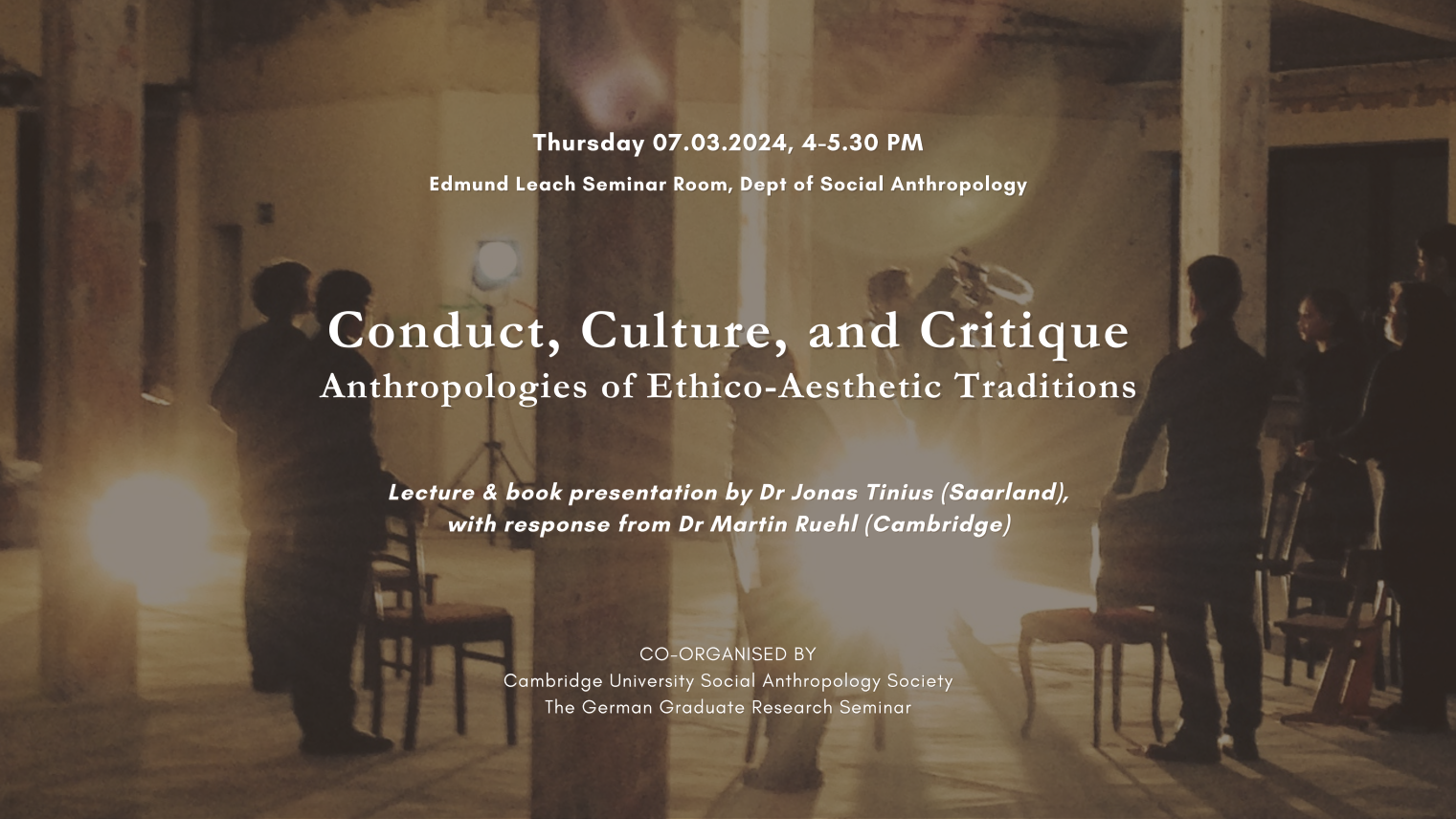
The next event in this term’s German Graduate Research Seminar series, a collaboration with the Social Anthropology Society (CUSAS), will take place on Thursday 7 March at 16:00 in the Edmund Leach Seminar Room in the Department of Social Anthropology.
Dr Jonas Tinius (Universität des Saarlandes) will be giving a lecture and book presentation titled ‘Conduct, Culture, and Critique: Anthropologies of Ethico-Aesthetic Traditions’. He will be discussing his research on German public theatre and a migrant artistic institution in the Ruhr region. There will follow a response by Dr Martin Ruehl (University of Cambridge).
Theatre critic and playwright Eric Bentley once formulated a “minimal definition” of theatre: “A impersonates B while C looks on” (The Life of Drama, 1964). Few art forms constitute, even at their simplest, such a theatrical sociality that enacts and simultaneously reflects on the constitution of social relations. As part of this roundtable conversation, anthropologist Jonas Tinius will present his book State of the Arts. An Ethnography of German Theatre and Migration (Cambridge University Press, 2023), which draws on a decade of engagement with the unique German public theatre tradition through the prism of a migrant artistic institution in the western post-industrial Ruhr region. In this book, Tinius analyses how the formalisation of the German cultural tradition of Bildung (self-formation through culture) as a governmental principle of the modern Prussian state has institutionalised public theatres as sites for moral and state-formation and thus helped co-constitute modern German governmentality and the idea of Germany as a state of Kultur and the arts. He unpacks how this idiosyncratic institutionalised governmental tradition has facilitated the development of “extra-ordinary” forms of critical conduct through which a professional political, social, and aesthetic subjectivity emerges. The theatre at the heart of his fieldwork understood itself as a place for and of the bastardo — those without father-land and mother-tongue — and as such exemplified both a culmination of the German logic of state patronage and its starkest rebuttal in a post-migrant logic of transnational becoming.
For more information, please visit the event page on Facebook: https://fb.me/e/1LKtCzcOK.



